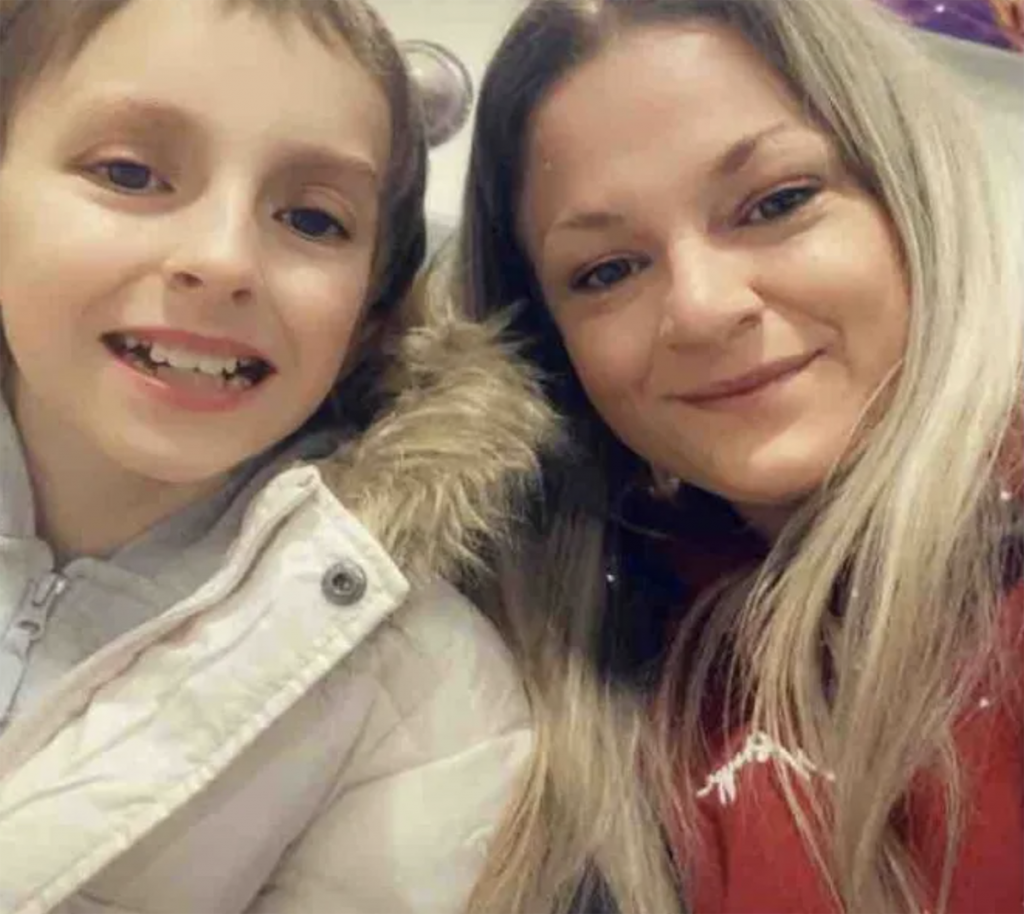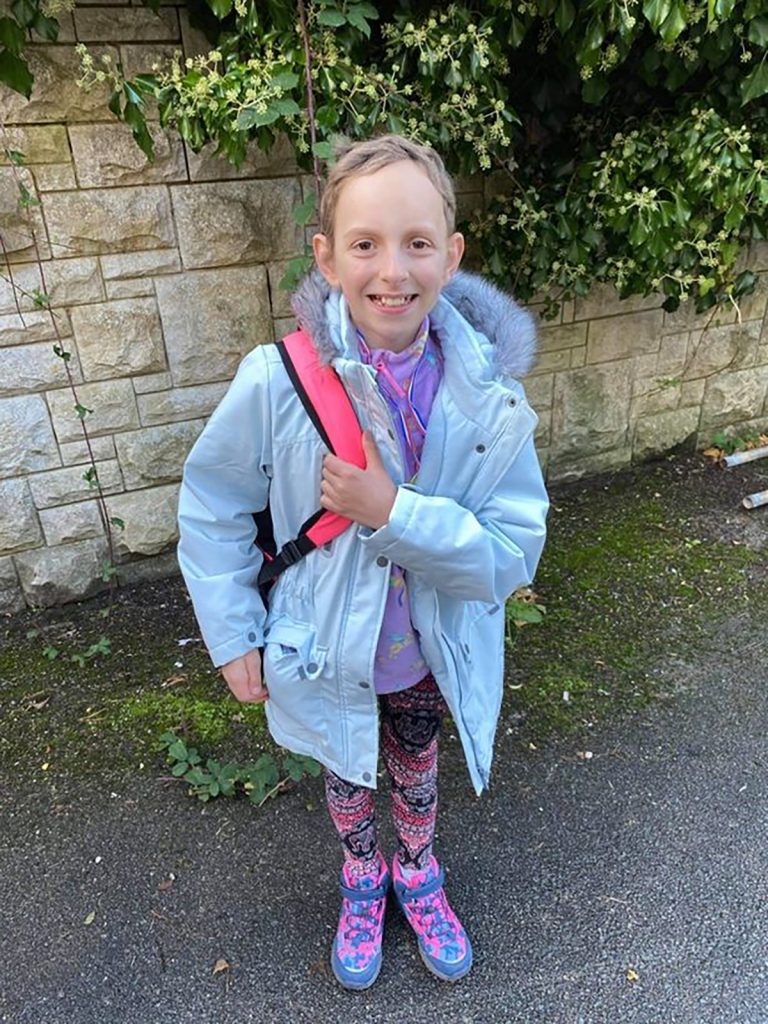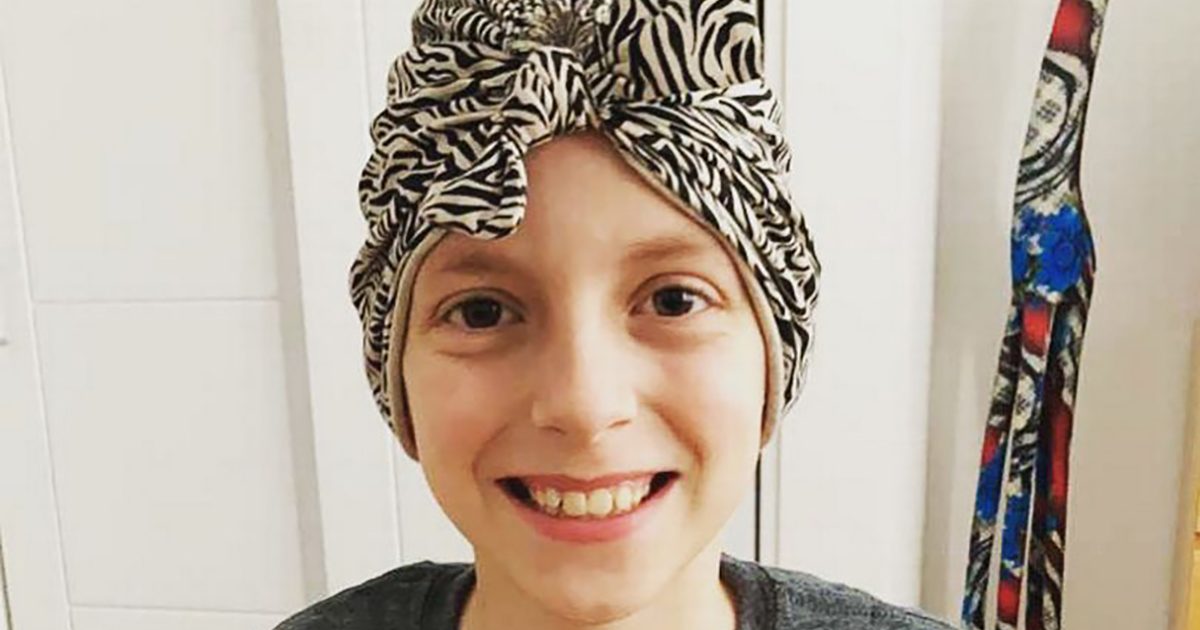Advocating for Your Child's Health
- A young girl with a brain tumor was misdiagnosed with having anxiety at the onset of the Covid-19 pandemic, and now her cancer has returned.
- Lily Harding was diagnosed with an atypical teratoid rhabdoid tumor (ATRT), which is a rare, aggressive brain tumor of the central nervous system.
- Just as being your own advocate is important when it comes to cancer care, it is just as important for parents to advocate for their child's health. And by doing so, you can make sure that your doctor sees you and your child as an individual in the diagnosis and treatment process.
Toni Jenkins, mother of Lily Harding, then nine, tells the Manchester Evening News that at Lily's doctor's appointment last month, it was revealed her cancer has spread to her spine. Her prognosis has not been made public.
Read MoreLily's Brain Tumor Diagnosis
Lily's symptoms began in early 2020; she visited her doctor after she kept vomiting, but her symptoms were dismissed. "In January 2020, she (Lily) started being sick every morning and at the start of lockdown in March she was really bad," Toni says. "The doctors at first thought it was anxiety because of coronavirus and lockdown. Then they thought it might be acid reflux."
In August 2020, as Lily's symptoms were getting worse, Toni decided to take her daughter to the hospital, but she was sent home.
"We took her back the next morning because she was still sick and so they gave her a CT scan, which showed a massive tumor in her left frontal lobe," Toni recalls. "It was about the size of a large egg."
Lily was diagnosed with an atypical teratoid rhabdoid tumor (ATRT), which is a rare, aggressive brain tumor of the central nervous system. These tumors make up just 1% to 2% of childhood brain tumors, hence why they are considered rare. The condition will typically appear in children around the age of 3, but these tumors can occasionally occur in older children, like Lily.
"We were absolutely devastated. Everything happened so fast," Toni says. "The next day, she was having surgery. We just had to stay strong for her."
After her initial diagnosis, Lily had three "major" operations, as well as chemotherapy and radiation in order to destroy the tumor. The treatments seemed to work, as Lily was given the "all clear" in April 2021.
However, her cancer returned just a few months later. She had to visit her doctor every three months for scans, which all remained clear until November 2021. The family was given the heartbreaking news last month that Lily's cancer has spread to her spine.

"Lily has a couple of options left but the chances are very slim," Toni says. "We are doing research and trying to find other treatment options."
"We're not giving up and we will do absolutely anything we can to save our beautiful daughter, the world will be a lot darker without her."
Advocating for Your Child's Health
Just as being your own advocate is important when it comes to cancer care, it is just as important for parents to advocate for their child's health. And by doing so, you can make sure that your doctor sees you and your child as an individual in the diagnosis and treatment process.
This is what Toni did for her daughter in pushing for doctors to look beyond her daughter’s anxiety diagnosis, which led them to a brain tumor discovery.
Advocating for Yourself While Navigating the Medical World
"One of the biggest things that I did from the very beginning was asking the right questions," Alex Echols, a patient advocate and lymphoma survivor, tells SurvivorNet. "It's our lives on the line."
He credits these questions with making sure that doctors took him seriously and viewed him as a partner in his treatment.
How to Cope When Your Child Has Been Diagnosed With Cancer
If your child is diagnosed with childhood cancer, it may seem like the dreams you have for your family are falling apart. It is important to try to keep a level head after you have fully felt all of your emotions around the diagnosis.
But it is also important to feel all of those emotions that come along with receiving a childhood cancer diagnosis.
The Value of Using a Social Worker During Treatment
As a parent, remember that you are not alone in this journey; your child's oncologist and care team are there to guide you and provide information and answers. Oncological social workers are a fantastic resource to help you sort out the financial aspects of cancer treatment, as well as other cancer-related issues. Skilled psychologists and counselors can be accessed to help you maintain good mental health through your child's cancer journey, to the best of your ability.
And do not be afraid to reach out to your support system friends, family, etc. for help through this process. No one expects you to handle everything on your own.
Contributing: SurvivorNet staff
Learn more about SurvivorNet's rigorous medical review process.


